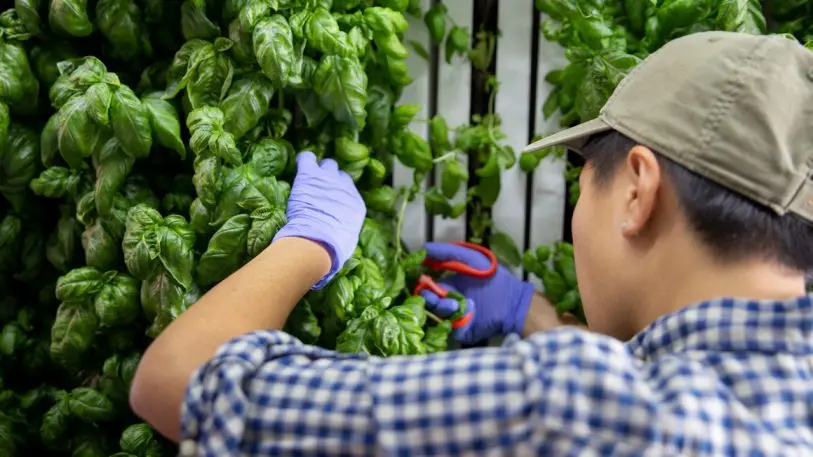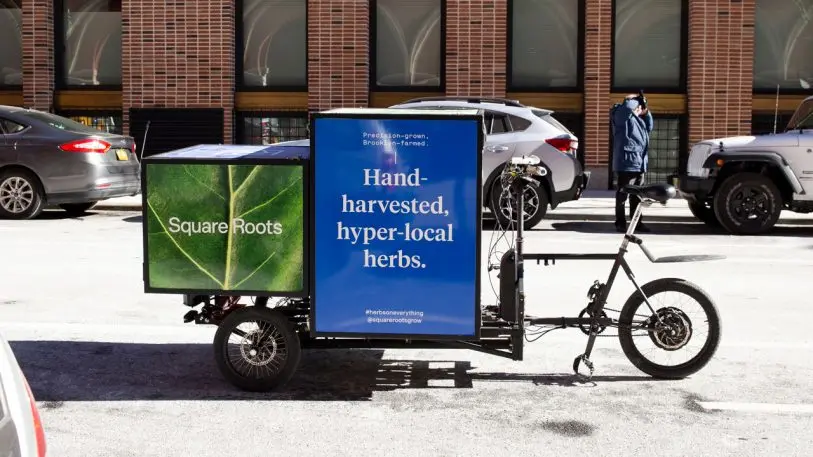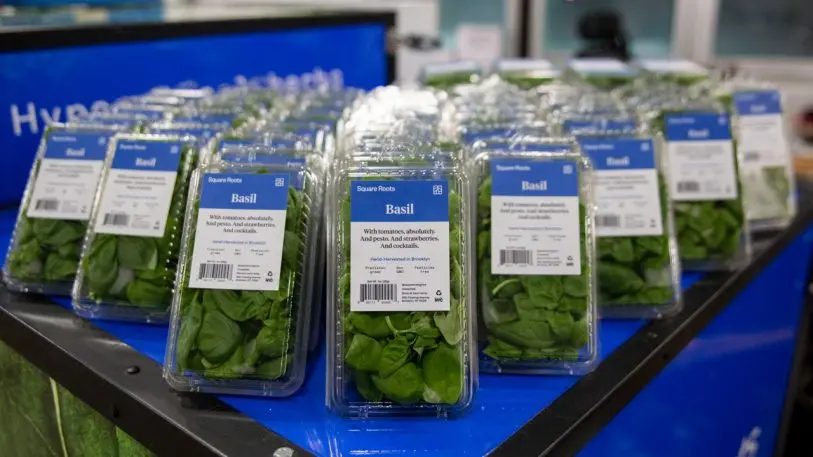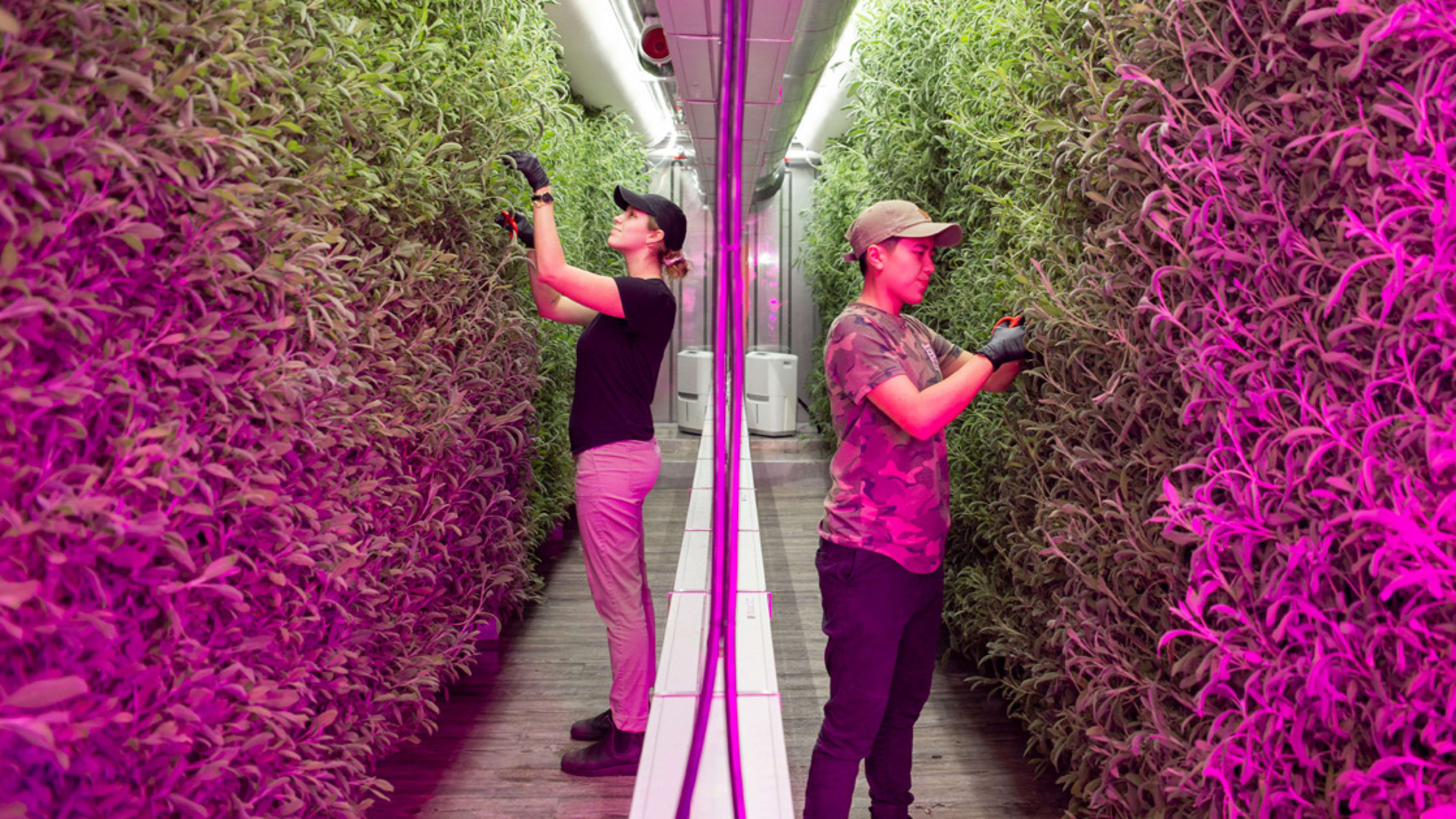Since 2016, Square Roots–the indoor urban farming startup founded by Kimbal Musk and entrepreneur Tobias Peggs–has been producing a steady output of fresh herbs and greens. In 10 shipping containers in a Brooklyn parking lot, the Square Roots team harvests the produce for local distribution to New York grocery stores, and educates young people interested in learning this new, tech-driven method of agriculture.
Musk and Peggs aren’t the only entrepreneurs growing greens indoors and hydroponically: AeroFarms and Bowery, both based in New Jersey, are just a two of the many other companies using similar tactics to grow kale and basil. It’s an increasingly popular idea: Bowery and AeroFarms have raised $118 and $138 million, respectively. But some more traditional organic agriculture advocates, like Dan Barber, have criticized the method for failing to contribute to the effort to remake farming in a more environmentally healthy way, in favor of leaning on new technology.

The farming tech company (or “accelerator,” as Musk and Peggs call it) is partnering with Gordon Food Service, which manages distribution facilities across North America as well as 175 retail store locations. Through the partnership, Square Roots will set up its shipping container farming systems on or very near GFS’s distribution and retail locations. The idea is to create a very short pipeline for fresh, local greens to reach GFS customers. And through Square Roots’ Next-Gen Farmer Training Program, which will expand along with the growing operations, Peggs says the number of young people the company will be able to train and employ will increase dramatically.

The way the partnership came about, Peggs says, is tied up with another project of Musk’s: his nonprofit Big Green, which educates young kids about food and growing by installing gardens in schools. GFS, which is based in Grand Rapids, Michigan, sponsors Big Green in Detroit. Around nine months ago, GFS’s CEO, Rich Wolowski, traveled to Brooklyn to visit the Square Roots facility to investigate the possibility of a partnership.
“GFS understands that there’s an increasing consumer demand for locally grown food, and changes in climate mean that we need to be thinking about new and innovative forms of agriculture,” Peggs says. “So they came to the farm and literally tasted the basil. It was obvious that the companies were mission-aligned: We both want to bring good quality food to a great number of people.”

The partnership evolved very quickly, and not all of the details are final. Square Roots and GFS, for now, are not announcing which distribution centers and retail stores will be the first to get a farm on their property. But they do have a sense of what the impact could be: Each Square Roots farm “campus” might contain 10 shipping containers, each of which will create one job for a local person interested in the Next-Gen Farmer Training Program. Each campus can grow around 50,000 pounds of produce per year, which will feed directly into the local food supply. The farms are all connected, so as more come online, Peggs says the company will receive more data about what conditions lead to the best yields, and will be able to use that knowledge to increase efficiencies and introduce more diverse crops to their operations.
Square Roots and GFS are not placing a ceiling on how many farm containers each property might receive: That, Peggs says, can quickly develop in accordance with customer demand. “We’ll start with putting 10 containers down in a market, and as demand for locally grown produce increases, we can very quickly expand our footprint by adding more modules,” he says.
The greatest potential for the partnership between GFS and Square Roots, perhaps, is that it represents a truly localized supply chain for fresh produce. In the U.S., food travels an average of 1,500 miles to reach people’s plates. Those 1,500 miles represent excess carbon emissions from transport and electricity use from cooling needs along the way. If food, instead, can be grown and distributed in the place it is produced, as the GFS and Square Roots partnership aims to accomplish, we could begin to walk back some of the environmental costs of accessing food. “It’s going to take more than Square Roots and GFS to fix the food system,” Peggs says, but he’s hopeful that the partnership and prospective growth signal a real shift toward more localized food production and distribution.
Recognize your brand’s excellence by applying to this year’s Brands That Matter Awards before the early-rate deadline, May 3.
